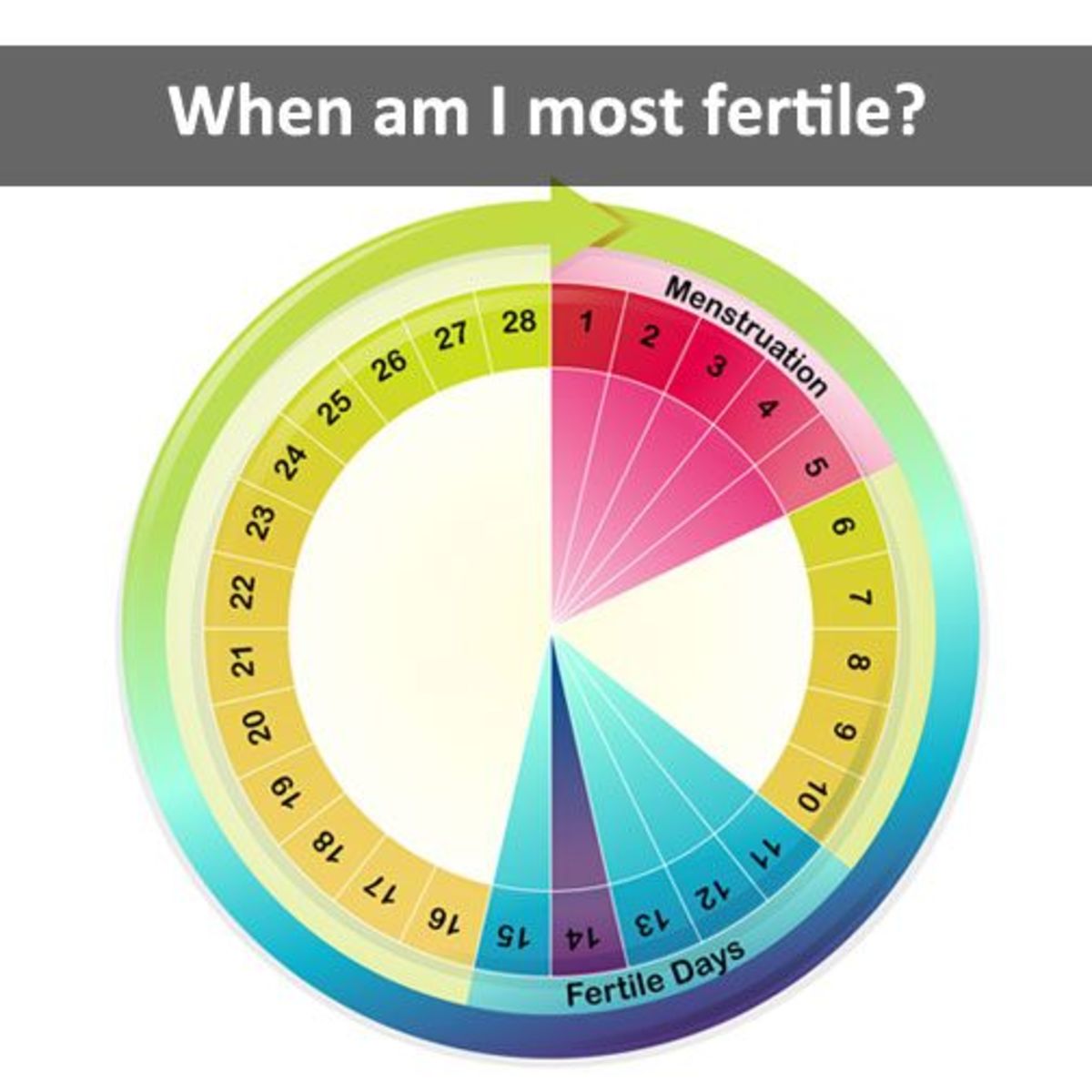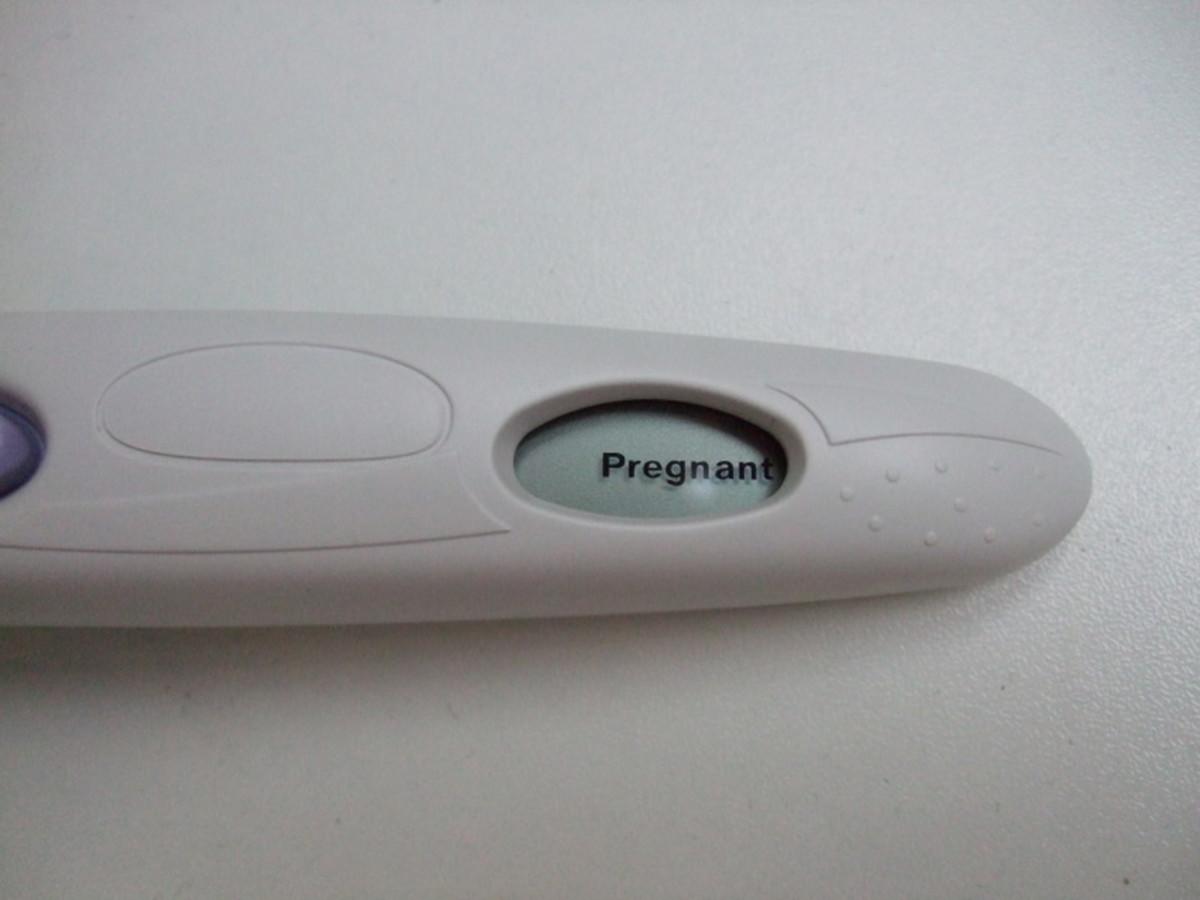Information and Tips For Couples Trying to Get Pregnant

Whether you are a couple that has decided to try to get pregnant with their first child, a couple trying to conceive a sibling for their existing child, a woman attempting to avoid pregnancy, or an individual that is simply looking for information on conception, pregnancy, or the menstrual cycle, this article will provide helpful information, tips, and resources for further reading.
Even if you are a woman who thinks they know their cycle and their body thoroughly and fully you may find information that surprises you. Deciding to try conceiving a baby is a huge decision and the process may go very smoothly for you or you may find that you are having difficulties like many couples. The more you know about your personal cycle and the reproductive functions of both you and your partner, the smoother your pregnancy journey will be.
Getting pregnant is not always as easy as some people think. The journey can take months or even years longer than you might expect. One important thing to remember is to not let yourself feel defeated at any point. Keep researching all the information you can and start with the simplest solutions first.
A Woman's Monthly Cycle
The first step towards attempting to get pregnant (or avoid pregnancy) is to know your menstrual cycle.
The average menstrual cycle occurs for 28 days but it is still normal to vary by a few days. Yours may be shorter or longer and even vary month to month. Some women with irregular periods or irregular menstrual cycles may only experience a period every few months.
Menstruation (your period) is just one part of your cycle. Several other things occur during the month that contribute to your cycle and fertility. Another major event is ovulation. Ovulation typically occurs 14 days before the beginning of your next period. The 14 day period following ovulation and leading to your period is known as the Luteal phase, or on many blogs, forums, and other sites as "the two week wait." This can be a confusing time for women and their bodies because during this time they may experience symptoms that indicate pregnancy or PMS and both can be very similar. Often, it is difficult to distinguish between pregnancy symptoms and PMS symptoms.
Just prior to ovulation, typically one day but maybe more, the woman's body releases luteinizing hormone which is what causes your ovaries to release an egg (ovulation). A woman's ovulation period lasts for about one day, this is why to window for conception is typically very small.
If you haven't started to chart your cycles now is a good time. Keep a diary or even a computer document that you can edit each month. Your cycle begins on the first day of your period and ends when your next period begins.
Tracking Your Cycles:
Start by writing down the day in which your period began or the day in which you first notice spotting (small amounts of blood). It is also good to chart the day in which your period ends so you get an idea of how long it lasts each time.
You can document the symptoms you get around the time of your period or throughout the month so you know what is normal for your body and when you begin to experience a symptom that is abnormal to you.
Another good idea is to track your ovulation by using ovulation predictor kits, checking your basal body temperature, and becoming aware of your natural ovulation symptoms. A lot of women are confident that they know when they're ovulating but sometimes they're wrong. Remember that you may not always ovulate at the same time each month and this is a crucial time to know for when you are trying to get pregnant.
Changes in your typical cycle could indicate a number of things, including pregnancy.
Know If and When You Ovulate
Ovulation is a major event during your cycle. It typically occurs 14 days prior to your period, not after your period, which is a common misconception. If your cycles are pretty normal, knowing when you ovulate can help you to predict when your next period will come.
Some women with irregular periods may actually ovulate during a current period, making tracking this very difficult. As well, even if you get a period each month you may not have actually ovulated.
How to Detect Ovulation:
There are several methods that women can use to detect their period of ovulation.
Basal Body Temperature: This is said to be the most accurate way to detect ovulation but it does not work for all females. Sometimes the difference in temperature may be so slight and there may be other causes for fluctuations in temperature so it is not a complete telltale sign for everyone, though normally it is a good tool to use. When you ovulate, you experience a slight increase in basal body temperature.
Ovulation Predictor Kits: Also known as OPKs, ovulation predictor kits detect a surge in Luteinizing hormone which is released just prior to ovulation. Most women can detect an LH surge during one day although it can last slightly longer. Once your LH surge is detected, you should ovulate typically within 12 to 36 hours. Most tests will suggest that you attempt the "baby dance" in 12 to 24 hours following your surge but before 48 hours.
OPKs (as well as pregnancy tests) can even be found at some dollar stores for a fraction of the cost of others. If you are testing frequently, this may be an option for you. All OPks are manufactured to detect the Luteinizing hormone (LH) surge.
Natural Symptoms: Women can learn to detect their own natural symptoms during the time they ovulate. The most common and easiest to detect symptoms include changes in cervical mucus which becomes stringy and clear (similar to egg whites), changes in cervical positioning and texture (cervix is higher and softer during ovulation), pain on one side of the abdomen depending on which ovary releases the egg. Some women may experience soreness in their breasts which is associated to he release of progesterone following ovulation.
Why Can't I Get Pregnant?
Some women seem to have no problems at all getting pregnant while others try for months or years without success. The obvious reason for this is that all women are different.
There are a number of reasons why you may not be pregnant after trying for some time. You or your partner may have fertility problems. Specialists say that about 30% of fertility problems are related to the female, about 30% are related to the male, and the remaining percent is due to fertility problems with both individuals. Unfortunately there are some fertility problems that cannot be fixed and certain couples may never conceive no matter how hard they try or for how long they try. On the other hand, many fertility problems can be treated or helped.
Are you sure you're ovulating?
Some women may not ovulate every month, even if they receive a positive test result on an ovulation prediction kit. This is because the kit tests for an LH surge, not whether ovulation actually occurred. The LH surge, or Luteinizing hormone, is what causes an egg to be release from the ovary. One ovary should release an egg one month and the other ovary the next month, and so on. There are treatment methods available to help women with ovulation. Sometimes there is only one functioning ovary so an egg is only released once every two months instead of every month. There are a number of reasons that an egg may not be released during what should be ovulation. This can be determined by a doctor.
Some men may have complications that were not present before. Certain lifestyles, for instance, can greatly impact a man's fertility. These include smoking, diet, injury, and even hot tubs, among other things.
For couples without fertility problems that have not been able to conceive, there may be some simple fixes. You might just not know your cycles as well as you think and may not be timing intercourse as well as you should.
Try not to focus your sexual intercourse/baby dancing just for when you think you ovulate, but switch it to every second day for a couple of weeks each month. Afterwards, make sure the woman stays laying down to give the sperm time to swim to that egg.
The only way to know for sure whether you have any fertility problems or issues related to your cycle is to see your doctor. Even women that know their bodies and their cycles very well can have problems they are unaware of. Likewise, cycles can change throughout a women's life.
It is recommended that couples speak to their doctor after trying to conceive for one year. For women over 35 years old, speak to your doctor after 6 months of trying as fertility decreases significantly after this age.
How Long Have You Been Trying to Conceive?
Common Acronyms on Baby-Talk Forums
If you're reading forums, message boards, blogs, or other pregnancy related websites you may notice a lot of acronyms are used. The list below describes what some of the more commonly used acronyms stand for.
AF - Aunt Flo (your period)
BBT - Basal Body Temperature
BD - Baby Dance
BFN - Big Fat Negative
BFP - Big Fat Positive
DH - Devoted Husband
DPO - Days Past Ovulation
LH - Luteinizing Hormone
LMP - Last Monthly Period
MC - Monthly Cycle
OPK - Ovulation Predictor Kit
TTC - Trying to Conceive
More Info on Conception and Pregnancy
There are numerous books and websites that discuss the process of trying to get pregnant. Not every book or site is created equal and some have information that others do not. It's important to gather your information from various sources. Reading tips from professionals or personal stories from other couples can help you along your journey to becoming pregnant.
Here are a few websites and forums that are focused on conception and pregnancy:
http://babyandbump.momtastic.com/ - an excellent forum to discuss your story, read other's stories, and ask questions.
http://www.pregnancy-info.net/forums/ - Another great pregnancy forum discussing pregnancy loss, fertility, and tips on conceiving
http://www.justmommies.com/articles/signs_and_symptoms.shtml - Describes signs and symptoms of pregnancy
http://en.wikipedia.org/wiki/Luteinizing_hormone - Wikipedia page for Luteinizing Hormone
http://ibabydust.com/tools/ovulation_calendar/ - Ovulation and Fertility Calendar
http://www.mayoclinic.com/health/pregnancy-loss/PR00098 - Information on Pregnancy Loss





